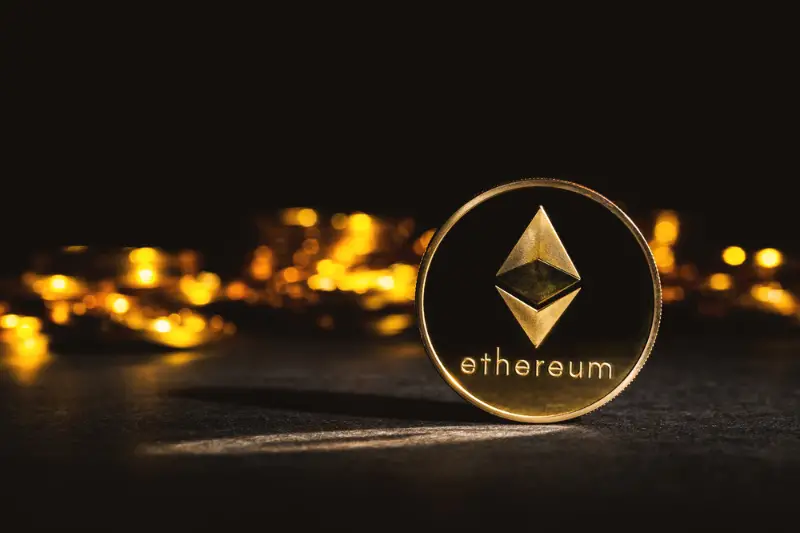Click here to get this post in PDF
Ethereum tokens have become a vital part of the blockchain ecosystem, but understanding their differences from Ether is crucial. In this article, we delve into the world of Ethereum tokens, exploring their benefits and use cases. If you are interested in Ethereum, it’s essential to know about uncovering Ethereum’s Beacon Chain and its role in the network’s development.
Ether (ETH) vs. Ethereum Tokens
Ether (ETH), the native cryptocurrency of Ethereum, functions as a means of transaction and value transfer within the network. It acts as digital cash and is used for various purposes, including paying for gas fees, which cover computational and storage resources required to execute smart contracts on the Ethereum network. Miners validate transactions and secure the network by dedicating computational power to solve complex mathematical problems, for which they receive Ether as a reward.
On the other hand, Ethereum tokens are representations of assets, utilities, or rights. They are created on the Ethereum blockchain using smart contracts and adhere to specific token standards, such as ERC-20, ERC-721, and ERC-1155. These token standards establish the rules and functions that tokens must follow, ensuring interoperability and compatibility across different applications and wallets.
Unlike Ether, which serves as the backbone of the Ethereum network, Ethereum tokens have diverse use cases and functionalities. They can represent anything from real-world assets like real estate and art to digital collectibles in the form of non-fungible tokens (NFTs). Tokens can also be used to access specific services or features within decentralized applications (DApps) through utility tokens. Additionally, governance tokens enable token holders to participate in decision-making processes within decentralized autonomous organizations (DAOs).
Furthermore, the issuance and distribution of Ethereum tokens differ from Ether. While Ether is primarily obtained through mining or purchasing it on cryptocurrency exchanges, tokens are usually created through initial coin offerings (ICOs), token sales, or airdrops. Token issuers define the total supply, distribution model, and any additional features or functionalities associated with the tokens.
It’s important to note that Ethereum tokens rely on the underlying Ethereum blockchain for security and transaction validation. The Ethereum network’s consensus mechanism ensures the integrity and immutability of token transactions, making them reliable and transparent.
Use Cases and Benefits of Ethereum Tokens
Ethereum tokens offer a wide range of use cases and bring numerous benefits to various industries. By leveraging the power of blockchain technology and smart contracts, these tokens revolutionize digital ownership, enable tokenized economies, and empower decentralized applications (DApps).
One significant use case of Ethereum tokens is the tokenization of real-world assets. Through the process of tokenization, assets such as real estate, art, and commodities can be represented and traded on the Ethereum blockchain. This brings increased liquidity, fractional ownership, and accessibility to traditionally illiquid and exclusive assets. Tokenized assets can be divided into smaller units, allowing more investors to participate and democratizing investment opportunities.
Non-fungible tokens (NFTs) are a prominent type of Ethereum token that have gained significant attention in recent years. NFTs represent unique digital assets, such as artwork, collectibles, and virtual real estate. These tokens have revolutionized the concept of digital ownership, enabling creators and collectors to prove authenticity, rarity, and provenance of their digital assets on the blockchain. NFTs have opened up new avenues for artists, gamers, and content creators to monetize their work and establish direct relationships with their audience.
Ethereum tokens also play a crucial role in decentralized applications (DApps). Utility tokens are used to access specific services or features within DApps, incentivizing user engagement and providing a means of value exchange within the ecosystem. For example, within a decentralized social media platform, users might need utility tokens to boost their posts or unlock premium content. These tokens enable decentralized economies and create vibrant ecosystems where participants are rewarded for their contributions and can actively shape the platform’s development.
Governance tokens are another type of Ethereum token that grants holders voting rights and influence over decision-making processes within decentralized autonomous organizations (DAOs). DAOs are entities that operate based on smart contracts and are governed by token holders. Governance tokens enable participants to have a say in protocol upgrades, fund allocations, and other key decisions, promoting decentralized governance and community-driven decision-making.
The benefits of Ethereum tokens extend beyond their specific use cases. Tokens provide increased transparency and immutability, as all token transactions are recorded on the Ethereum blockchain and can be easily audited. Additionally, tokens eliminate the need for intermediaries in asset transfer and ownership, reducing costs and friction in traditional processes.
Conclusion
Ethereum tokens are driving innovation and reshaping industries by revolutionizing digital ownership, enabling tokenized economies, and empowering decentralized applications. Through their diverse use cases and benefits, Ethereum tokens are transforming the way we interact with assets, engage in decentralized governance, and create value in the blockchain ecosystem.
Disclaimer: This article is not intended to be a recommendation. The author is not responsible for any resulting actions of the company during your trading/investing experience.
You may also like: Blockchain Economics? Everything You Should Know
Image source: Depositphotos.com

